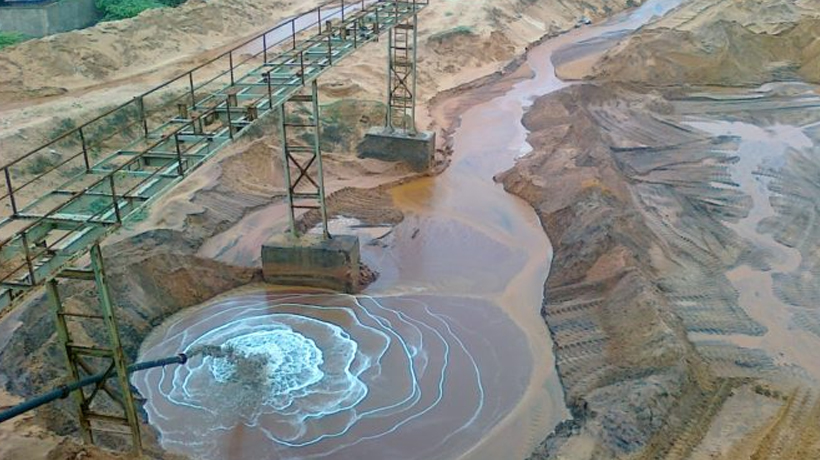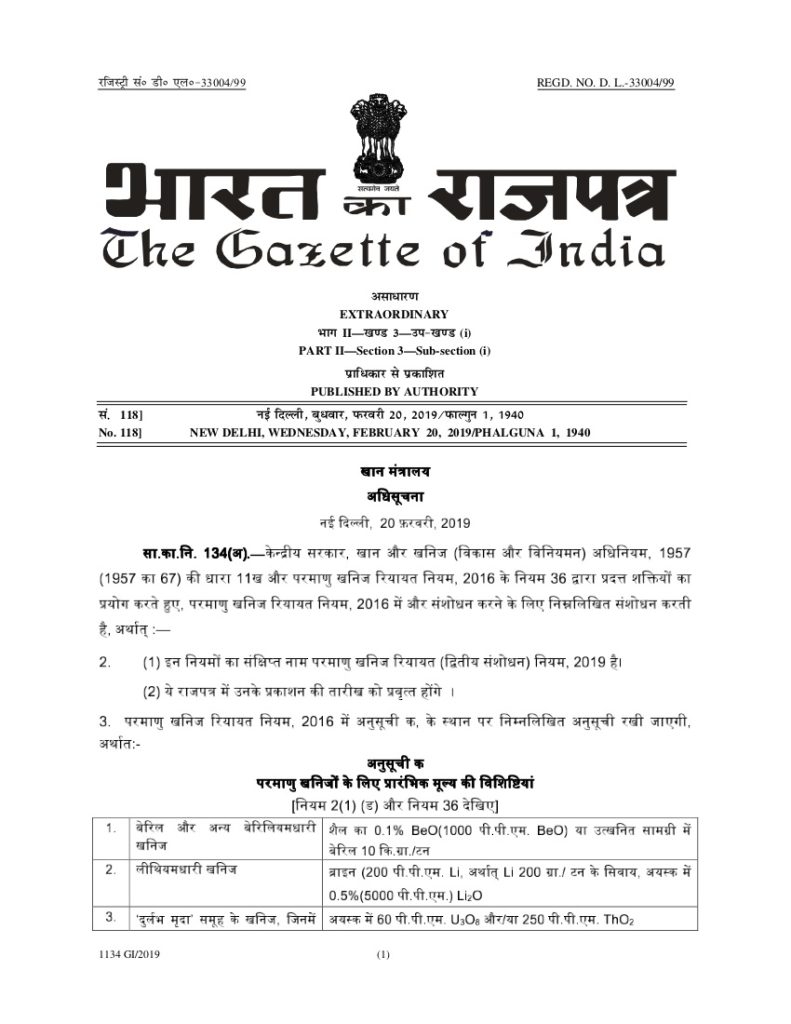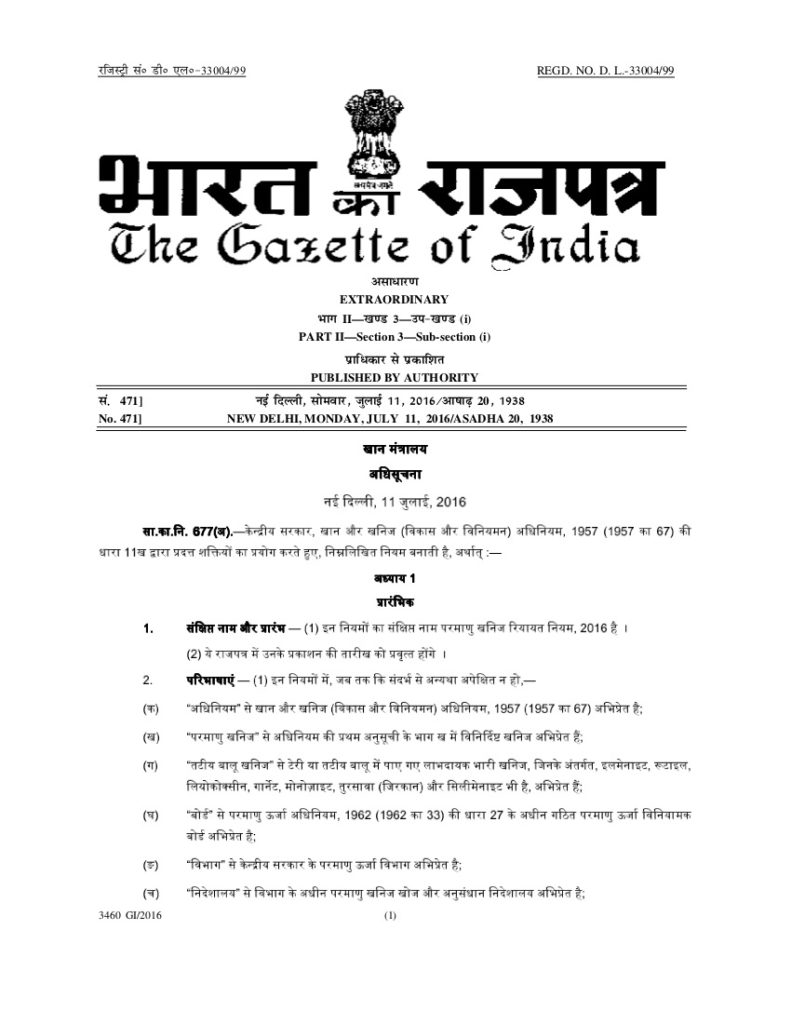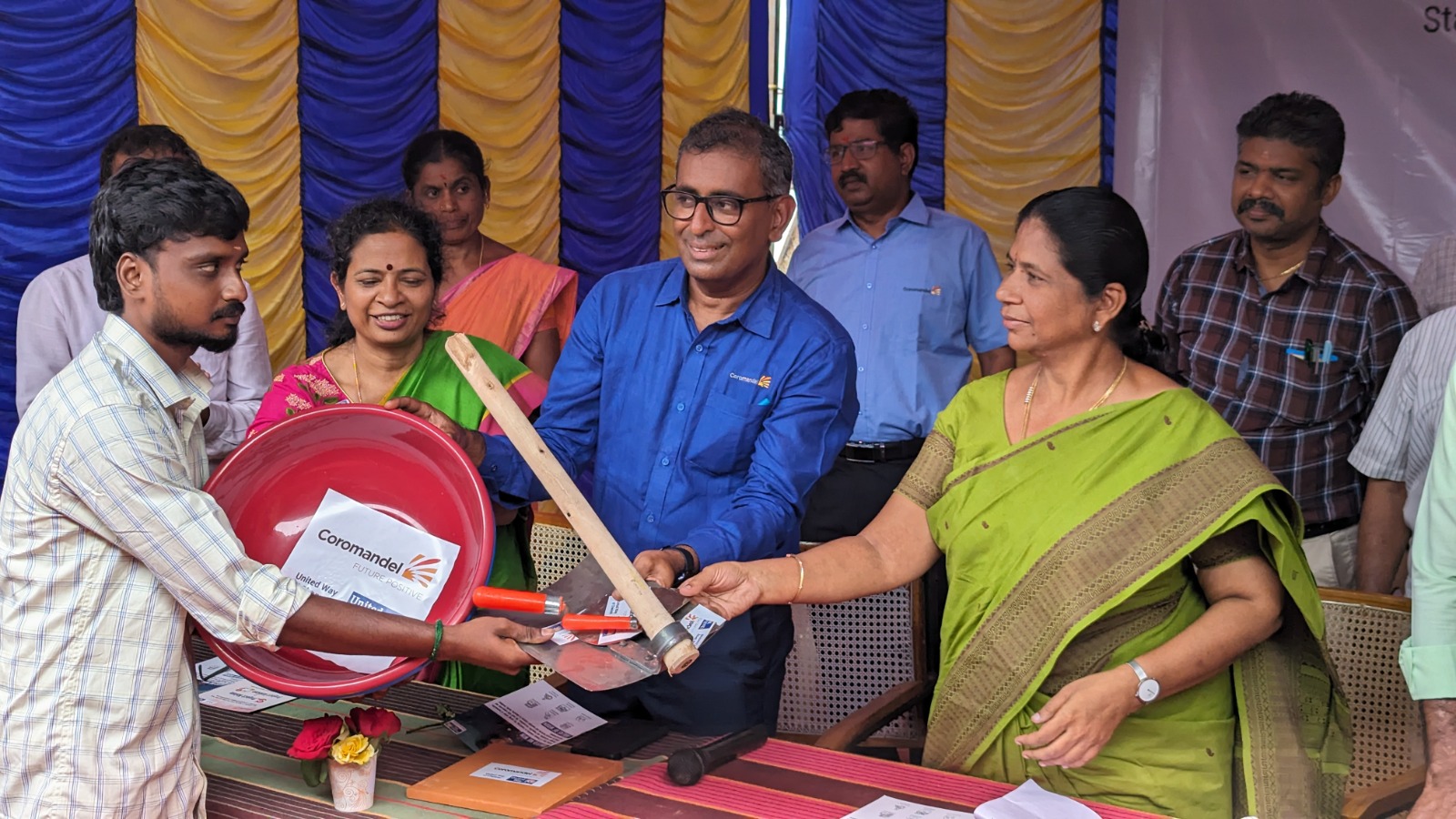Trending Now
- 830 voters names go missing in Kavundampalayam constituency
- If BJP comes to power we shall consider bringing back electoral bonds: Nirmala Sitaraman
- Monitoring at check posts between Kerala and TN intensified as bird flu gets virulent in Kerala
India News
Exclusive: The End.
![]() February 23, 2019
February 23, 2019
The government of India amends rules, in effect, putting an end to private companies mining beach sand minerals
Private beach sand miners can no longer mine the coasts of India, as per a Gazette notification by the Union Ministry of Mines which has just been made public.
In the notification dated 20 February 2019, the Centre has amended sections and rules which earlier allowed private companies to mine rare earth minerals found in the sands of India’s coasts.
“All cases of Beach Sand Minerals and other placer deposits in association with monazite are notified as above threshold (i.e. the threshold is 0.00% monazite in Total Heavy Minerals), irrespective of monazite grade,” said the notification.
Rare earth minerals are present as a mixture on the coasts of Tamil Nadu, Andhra Pradesh, Kerala and Odisha. These minerals include – garnet, ilmenite, rutile, zircon, sillimanite, leucoxene and monazite. Of these, monazite is an atomic mineral – it can be processed to yield thorium, a nuclear fuel which can further be enriched to uranium, a component of nuclear warheads.
With this amendment, the Centre has, in effect, ended the booming private beach sand mining industry in the country. This is because monazite is present in varying concentrations and grades across the coasts where these rare earth minerals are available.
In an earlier amendment to the same rules in 2016, the Centre had fixed a maximum concentration of 0.75% monazite in the beach sands, exceeding which, private miners would not be allowed to mine.
Two years later, the Centre has completely banned private players from the industry.
Why This Is Important
Over two decades later, post liberalisation, post the institutionalisation of corruption, post a ban by a state government and post the flouting of that very same ban, the Government of India appears to have finally woken up to the threat of atomic minerals, thorium rich minerals, being illegally exported by private companies from Indian shores.
This is a landmark amendment. Why? Because of the high stakes illegality that has surrounded the industry. Because of nuclear minerals being exported illegally out of the country, endangering national security, as has been established by a court monitored team of officials from relevant departments.
In Tamil Nadu, the beach sand mining industry has been a virtual monopoly for over two decades – monopolised by one family – S Vaikundarajan and his brothers.
While in Kerala and Odisha, the Central and state government agencies are the main miners and exporters of beach sand, Andhra Pradesh has a few private players like Trimex Sands and others.
A Public Interest Litigation is currently underway in the Madras High Court. Filed originally in 2015, the court converted it into a suo motu PIL the same year. This case is nearing its close and with it, mind boggling irregularities, corruption and evidence of collusion of officials and politicians with the miners have already come to the fore.
The PIL has prompted urgent internal investigations into a number of Central government departments such as the Indian Bureau of Mines amongst others – the government suddenly woke up to the fact that a variety of bureaucrats and politicians have, over two decades, actively aided and colluded with the miners of southern Tamil Nadu to raid the country of its natural resources.
The allegation in the PIL is of a loss of Rs 2 lakh crore to the exchequer. Details now available with the Madras High Court as part of the PIL point to a figure many times more.
The peninsular coastline, along the three districts of Tirunelveli, Kanyakumari and Tuticorin has been eroded, the sea coming inland into the homes of fishermen. Sand dunes have been destroyed and the natural ecosystem of the area has been devastated, as per records available with the Madras High Court.
In 2013, then Chief Minister J Jayalalithaa banned beach sand mining in Tamil Nadu. Despite the ban, the miners continued to mine and export – a fact that has been clearly established during court proceedings.
A report by then Revenue Secretary of Tamil Nadu, Gagandeep Singh Bedi, on illegal beach sand mining was shoved into a corner and allowed to gather dust with politicians actively colluding for the same.
Officials of Central and state government departments in the past jointly colluded to bring out blatantly false reports consistently exonerating the miners, according to the Tamil Nadu government’s affidavit before the court. In August 2016, Jayalalithaa even suspended eight of them for doing exactly that.
Many who crossed the miners’ paths have faced extreme harassment, death threats and bribes. Some have succumbed. A handful have borne the brunt and carried on.
The Centre’s latest move is a small nod to that handful.
SOURCE : https://thelede.co.in/exclusive-the-end/























